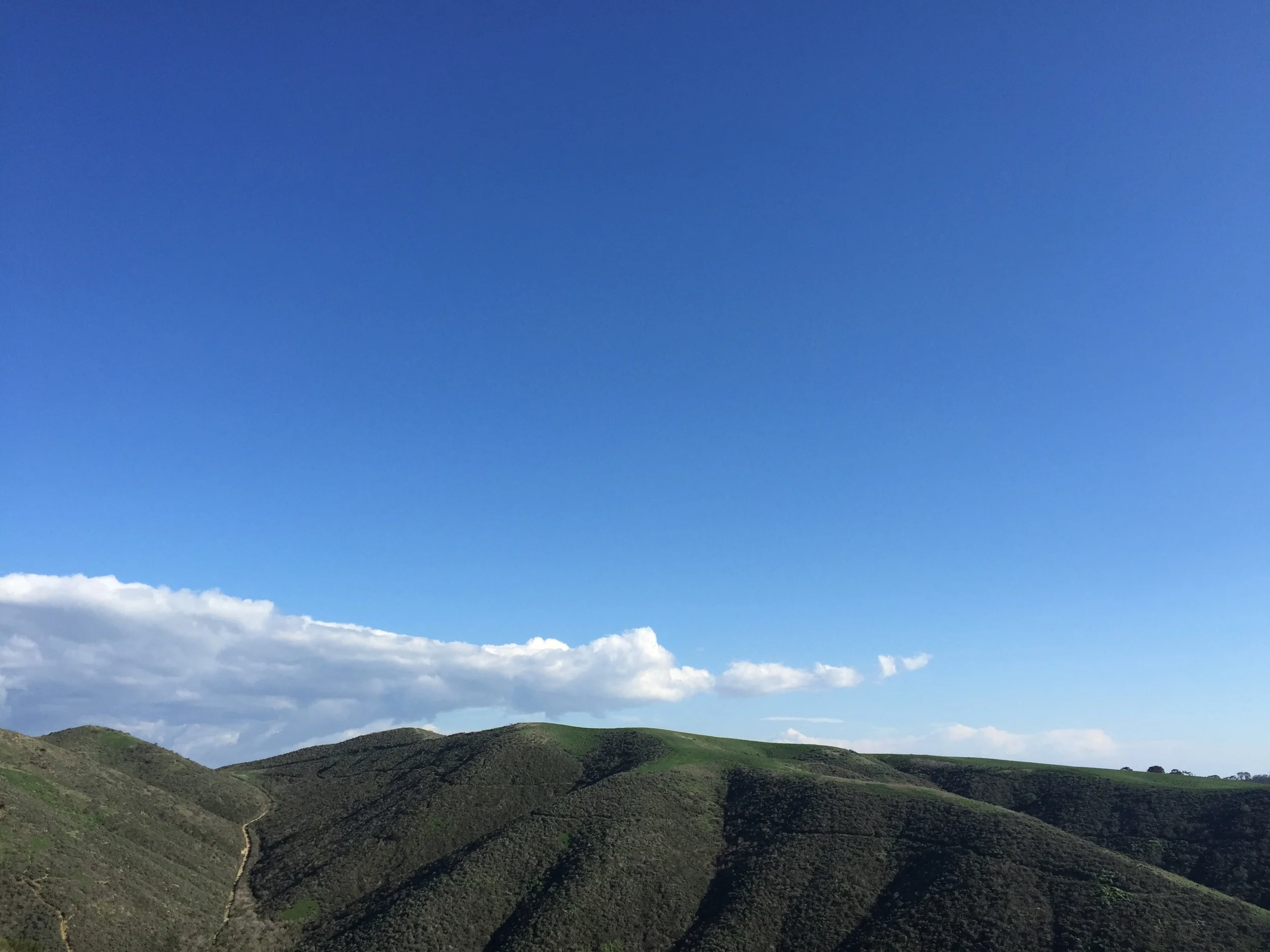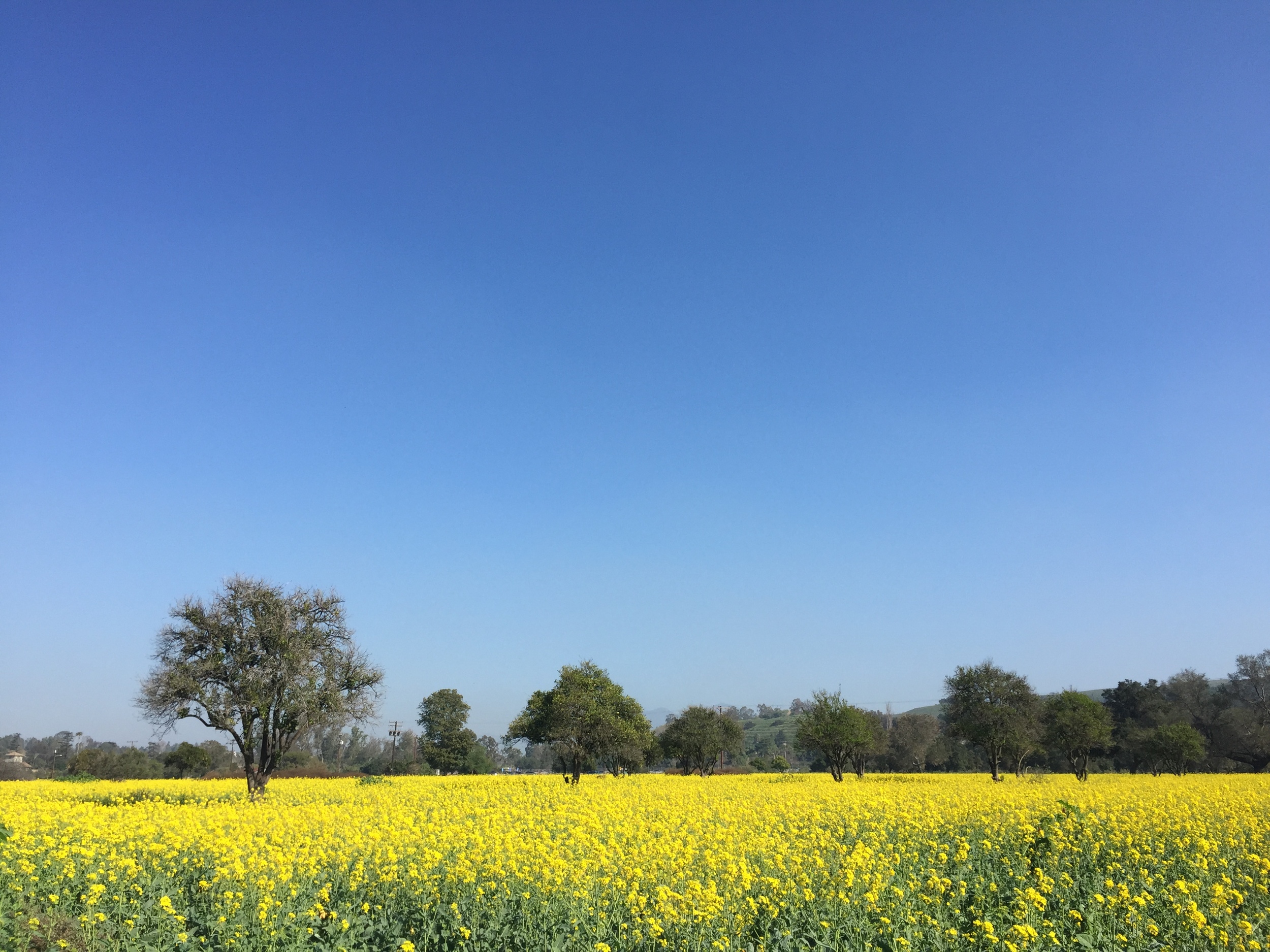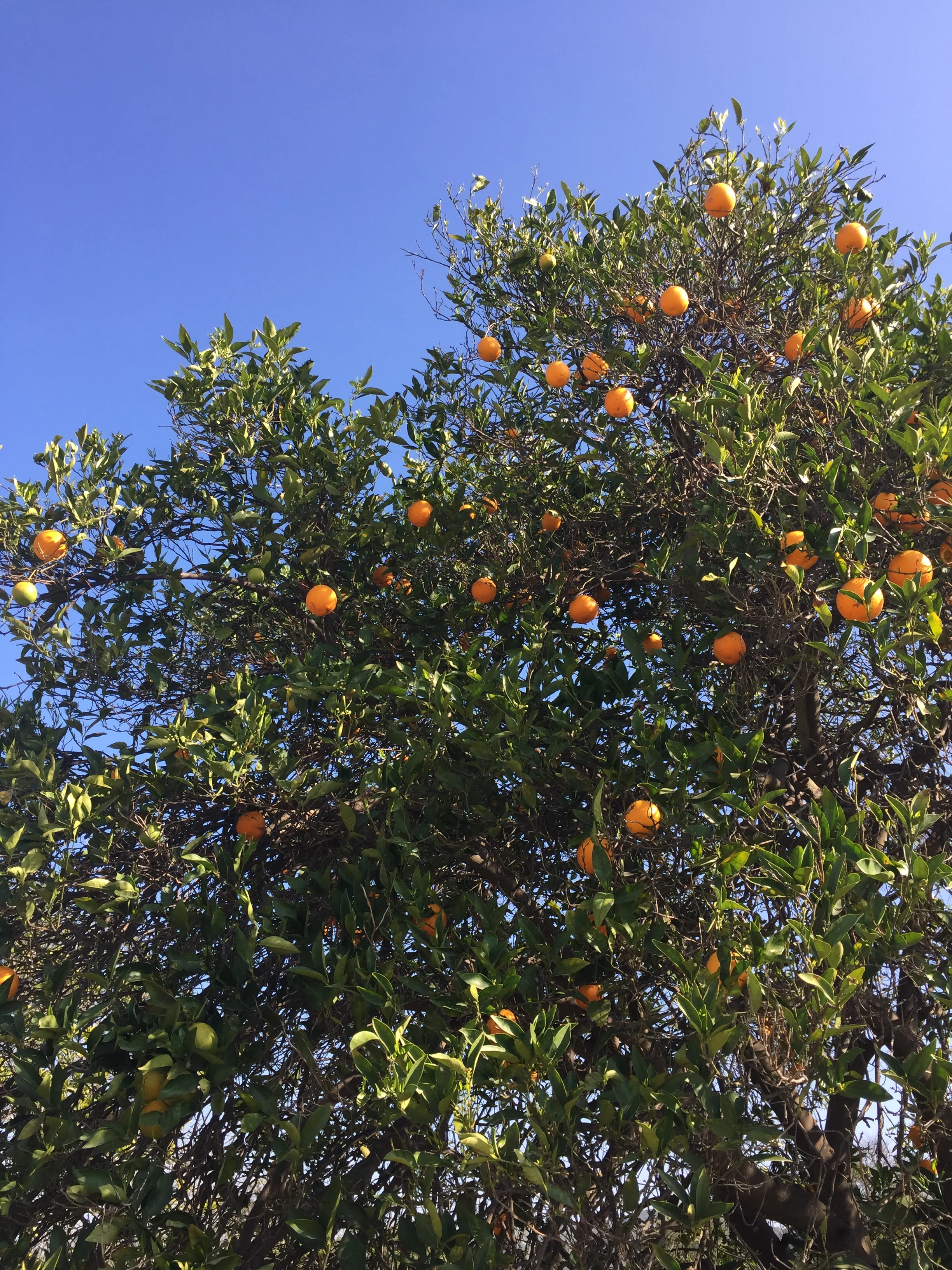Imported vs. local flowers - what's the deal? Well, let me tell you that there is a lot of misconception about imported flowers. Unfortunately, the majority of us have been misinformed or quite frankly, just have no knowledge at all when it comes to where our flowers come from and why it matters. Let me warn you now, this is gonna be a long post!
San Juan Capistrano Orange and Mustard Fields
When you hear the word "imported" flowers, the following other words likely come to mind:
Exotic | Specialty Blooms | Expensive | Luxurious | Fancy
When you hear the word "local" flowers, the following other words likely come to mind:
Inexpensive | Cheap | Boring blooms | Unexciting
Interestingly enough, this is not the truth at all for either local or imported. About 80% of America's flowers are imported. About 80% of the remaining 20% that are domestic are grown in CA (yay us!). The imported flowers are often much cheaper than what you will find for an American grown bunch of flowers. For example, the rose. As most of us know, the majority of our roses come from Columbia and Ecuador. These roses sell for much less than what an American rose farmer can afford to sell them for - one of the reasons being that for the past 20 or so years, the US government has incentivized South American countries to focus their efforts on crops other than coca to deter them from drug trafficking (that's my simple understanding of the story but I am no politician). Since then, American flower farms have suffered enormously and the majority have gone extinct.
Imported flowers are often soaked in a heavy dose of insecticides that are highly toxic and banned from use in the U.S. You're probably thinking that's not a big deal since you don't eat flowers, right? Wrong. Our natural reaction to seeing a bouquet of flowers is to immediately smell the blooms, which meanssss you're breathing in all that nasty and toxic insecticide.
Still not sold on local flowers? Well, did you know that local flowers will last much longer than your imported blooms? Imported blooms are cut up to a week or more before they arrive in your hands, shipped in a box - without water - flown thousands of miles and driven to your nearest florist, grocery store, etc. and then to you. On the other hand, local flowers are cut the day before or sometimes even the same day that they are delivered to a wholesaler, florist, etc. and then quickly delivered into your hands. It's easy to see that the local blooms will last much longer than a bloom that was shipped out of water a week ago.
San Juan Capistrano Orange and Mustard Fields
I also have to mention that buying imported flowers takes a big toll on the environment. Think of all the nasty insecticides that are being sprayed and put into the air, water and soil. Think of the thousands of miles of imported flowers travel, burning fossil fuels along the way. Think of all the packaging involved to box up the flowers - carefully padding them with flower petal protectors made of plastic, cardboard and rubber bands- preparing them for their long water-less journey to the US. Think of all the waste. The wasted flowers that didn't make it through customs because they had bugs. The wasted flowers that the florist had to throw out because the flower petals had yellowed or grown moldy during transportation. The wasted flowers that were damaged because they were handled too aggressively during customs inspection. Now think about your local farmer. Farmers typically deliver their flowers in buckets to the nearest wholesaler, florist and are used over and over again. In comparison, the waste is very minimal and if blooms are damaged or have an insect issue, the wholesaler or florist already has a standing relationship with the farmer and can report the issues directly and resolve them immediately.
View of San Juan Capistrano and Saddleback Mountain from the Top of the Hills
There are so many factors that go into the local vs. import argument - in fact, it's not even an argument, it's a no brainer that local is always best. Supporting your local flower farmer will bring and/or sustain jobs in your community and fuel the US economy. It also keeps our US farming history, techniques and traditions alive. The thing that resonates the most with me when it comes to the impact imported flowers has had on the US is the dwindling amount of flower farms in the US. I am the 10th generation to grow up in San Juan Capistrano, Orange County, CA and heard countless "I remember when" stories from my Mom and Grandma about the carnation fields and the orange fields that used to grow abundantly in the valley. Even in my lifetime, I have seen citrus groves and strawberry fields ripped out and replaced with shopping centers and tract housing. As a child, and even now, I would imagine the massive newly developed communities replaced by blankets of colorful carnations, winding dirt roads, orange groves and the sweet smell of citrus in the air. I definitely believe in progress and developing along with technology and modern improvements but it's a little devastating when a town or county has lost almost all traces to their roots and even their own name. There are hardly any orange groves left in Orange County and probably people who move here have no idea why it's even named that. An entire craft and many traditions are lost when a community looses something so vital to its history. I've sprinkled photos throughout this post that I took on some of my most favorite trails in San Juan Capistrano. The rolling green hills and bursts of yellow sunshine growing from the ground give a small glimpse into San Juan's rich agricultural past. It is my hope (in one of my many daydreams) to have a small flower farm located in San Juan Capistrano where people from the surrounding neighborhoods can walk over to my farm, pick up a lovely fresh cut bouquet of flowers for their home and feel proud that the traditions of their town lives on in those blooms.
Oranges from an Orange Grove in San Juan Capistrano
It's in our power - yours and mine - to help save the American flower farmer and bring flowers into our homes that will have a longer vase life, be safe to smell, that will support our local economy, help the environment, and bring lost traditions back into our communities. Supporting local is a way of preserving the past and cultivating our future.





